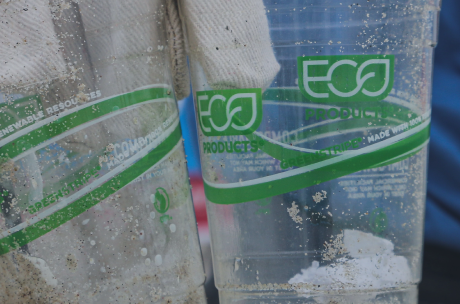We discussed with The Times business supplement the significance of validated data in making claims for social value and ESG technology. In the future, companies and their social value claims face closer scrutiny, impacting turnover and economic value through mandatory procurement requirements. Additionally, investors invest in ‘good companies’ with higher valuations. Therefore, it is not insignificant whether the claims of environmental and social impact are true or not. Companies are being sued for faulty, unverified claims. This more rigorous attention to validated data is only growing and long overdue.
Any unintentional greenwashing and social washing is avoided by relying on data from the ground/source. When a company collaborates with grassroots charitable organisations to enhance societal and environmental conditions, it should report outcomes and impacts. This responsibility lies with the party working with beneficiaries and monitoring project progress. Companies funding or volunteering with charitable projects should not try to guess outcomes or long-term impact.
More about whatimpact
At whatimpact.com, the matchmaking marketplace, comprehensive impact reporting is embedded to the matches made on the platform. This BSI 8950 and PPN 06/20 aligned reporting gives data and evidence to any funder directly from the beneficiary organisation. This way, companies can engage with their stakeholders and communicate their ‘S’ in transparent, validated way.
The ‘S’ in ESG
The “S” is a hot topic and the world is trying to make sense of it with turning it into numbers, as the article demonstrates. One can surely calculate the monetary value for social value, but only when they know and validate the difference being made.This means we need to know the progress made through action – this requires qualitative information. After having this data and evidence, we can speak about turning it into numbers. And the philosophy and data sources appropriate to use for the purpose. Therefore, proxy numbers, statistical averages as such have a big margin of error as they cannot take into consideration to start and the end point of particular project.
Different calculators and monetisation models suit different purposes. London Business School professor Ioannis Ioannou says in his quotes, but we also agree with this view on that, at the moment, we are far from having a single optimal calculation approach.
Find the full article on page 4.
You can read more about impact reporting and our impact reporting model on our recent blog!
whatimpact.com is a matchmaking marketplace for companies to match with local and nationwide charities and social enterprises when donating their skills, products, services or money. The platform provides comprehensive social impact reporting on the partnerships. It helps companies to build their brand and engage with their stakeholders. Whatimpact.com is for all sizes and types of companies who wish to contribute social and environmental value for our society.





